


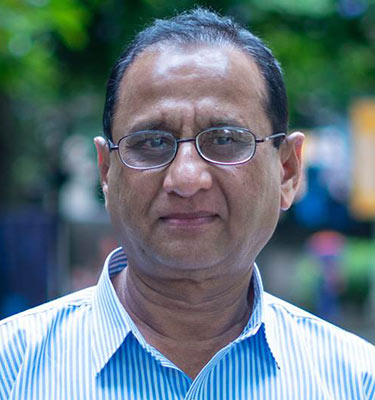



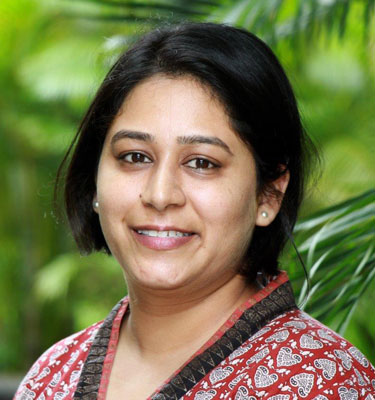
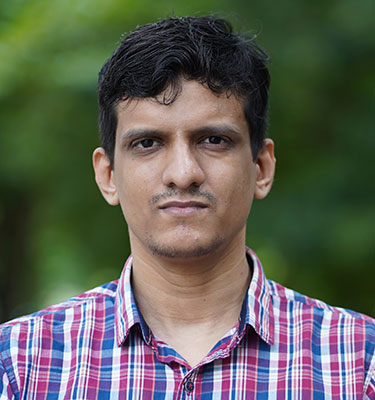

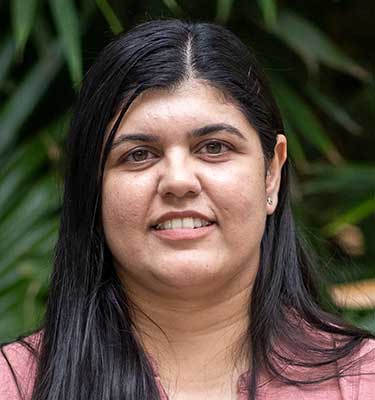




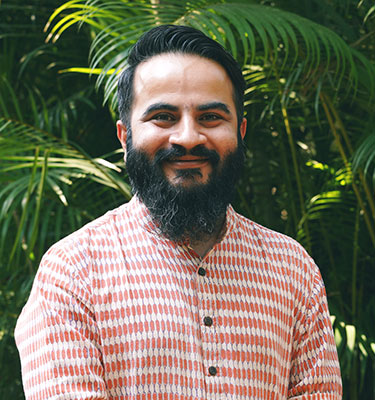



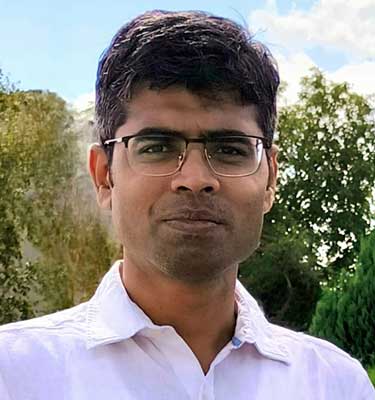

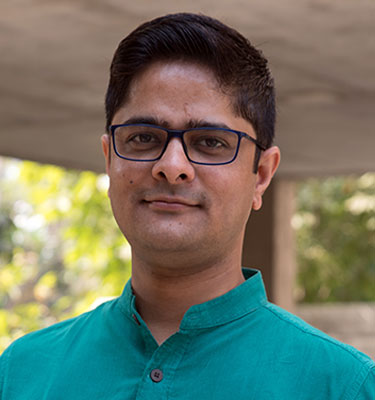


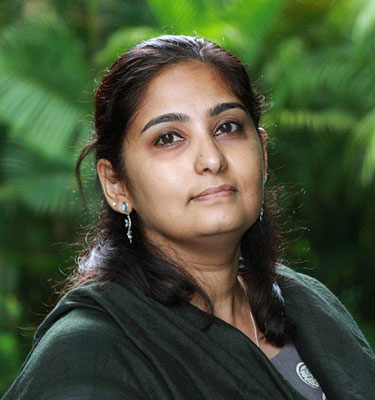
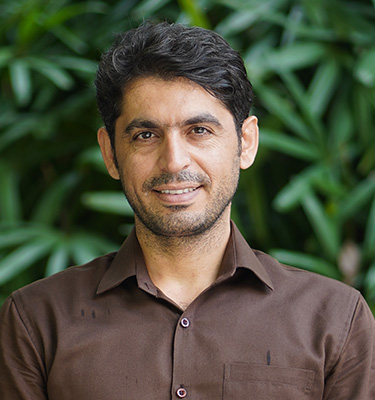


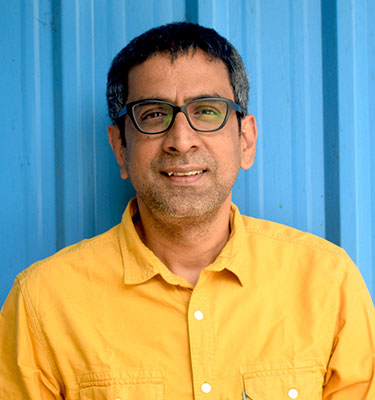



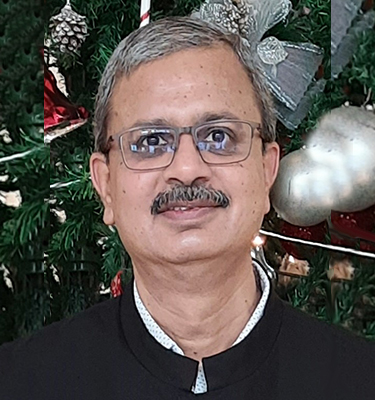
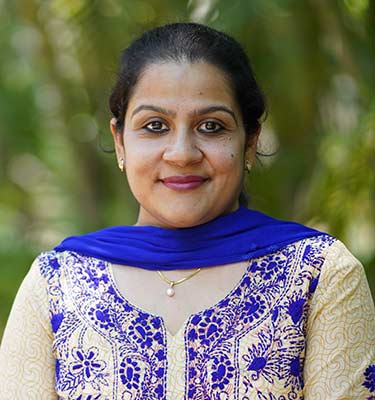

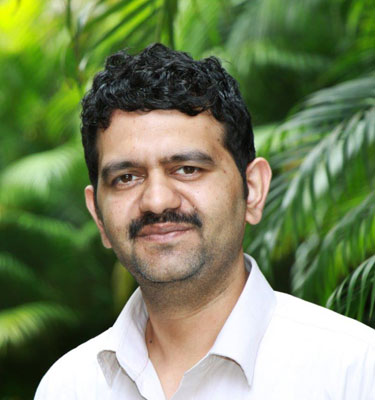




FACULTY
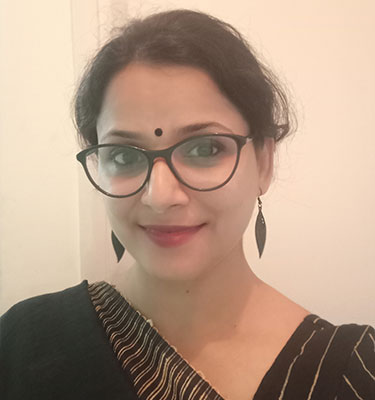
Prof. Rajitha Venugopal
Dr. Rajitha Venugopal received her Doctoral Degree in English Literature from Jamia Millia Islamia, New Delhi. Her dissertation was a study of the works of Barbara Kingsolver, a contemporary American writer, known for environmental writing. Her M. Phil research from the same department was on the translated short stories of Narayan, the first published indigenous writer in Malayalam. She did her Master’s Degree in English literature from the University of Hyderabad and her Bachelor’s Degree from the University of Calicut. While pursuing her doctoral research, she was associated with FLAME University as a Visiting Faculty to teach Academic Writing since 2017. Before FLAME, she taught at the Department of English, Jamia Millia Islamia, Institution of Home Economics (Delhi University), and the Government Chittur College (Calicut University). In 2020, she worked as a Project Fellow for the University Grants Commission's DRS-SAP (Departmental Research Support - Special Assistance Programme) on Translation Studies at the Department of English, Jamia Millia Islamia. Prior to that, she was a recipient of the University Grants Commissions’ Junior and Senior Research Fellowship from 2012-2017.
Her research interests straddle the intersections of Environmental Humanities, Postcolonialism, Indigenous Lives and Cultures, Cultural Studies, South Asian Literature, Indian Writing in English and translations from regional languages, and Kerala Studies. She has presented research papers at various national and international conferences, published research articles, and contributed chapters to edited volumes in the areas of ecocriticism and literature. She is a recipient of the 2022 Translation Grant from the Association for the Study of Literature and Environment (ASLE) for translating the book Pachaviral: Dayabayude Atmakatha from Malayalam into English.
Journal articles
- Venugopal, R. (Dec 2021). “A fable for today: understanding the discourse of “derangement” in Barbara Kingsolver’s Flight Behaviour.” LittCrit Journal, 47(2), 96-105.
- Venugopal, R. (June 2021). “So, if we sell you our land: A brief overview of Native Americans in the United States of America” The Johar journal, II.
- Venugopal, R. (June 2020). “Of histories, borderlands and nations: Reading Barbara Kingsolver’s The Lacuna as historical metafiction transcending borders” LittCrit Journal, 46(1), 43-54.
- Venugopal, R. (Nov 2019) “Interconnectedness of the Local and the Global in Kingsolver’s Select Writings” in International Journal of Research in Humanities, Arts and Literature, vol.7, no.1.
Book chapters
- Venugopal, R. (2022). “Landless, Homeless, and Nameless: Locating Caste in the Environmental In/Justice in Perariyathavar.” The Routledge Companion to Caste and Cinema in India. Joshil K. Abraham and Judith Misrahi-Barak (Eds.), Routledge, pp. 260-274.
- Venugopal, R. (2022). “Gandhian Environmentalism and its Limits: A Reading of C.K. Janu’s ‘Autobiographic Testimonio’ Mother Forest.” Gandhi in India’s Literary and Cultural Imagination. Nishat Zaidi and Indrani Dasgupta (Eds.), Routledge, pp. 195-207.
- Venugopal, R. (2002). “Agrarian Distress and Food Sovereignty: Reading Resistance in Namita Waikar’s The Long March.” Anthropocene Ecologies of Food: Notes from the Global South. Simon C. Estok, Susan S. Deborah, and Rayson K. Alex, (Eds.), Routledge, pp. 141-157.
- Venugopal, R., trans. (2022). “Art and Literature as Resistance” (MN Vijayan). Ecocriticism in Malayalam, Rayson K. Alex. (Trans. Ed.) (Harithaniroopanam Malayalathil, ed. G. Madhusoodanan), Cambridge Scholars Publishing, pp. 23-33.
- Venugopal, R., trans. (2022). “The Aesthetics of Folk Literature” (K. Aiyyappa Panicker). Ecocriticism in Malayalam, Rayson K. Alex. (Trans. Ed.) (Harithaniroopanam Malayalathil, ed. G. Madhusoodanan), Cambridge Scholars Publishing, pp.58-67.
- Venugopal, R. (2013). “Scripting Lives/Seeking Space: Life Narratives of C.K. Janu and K. Pokkudan.” Dalit Literature: Reading Resistance, Saroj Kumar Mahananda (Ed.), Sangharsh.
- Venugopal, R. (2013). “Adivasi Predicaments in Kerala: Reading Narayan’s Thenvarikka and “The Boats are Burned.” New Dimensions in Contemporary Literature, R.K. Dhawan and Shahram R. Sistani. (Eds). Prestige.
Conference presentations
- Venugopal, R. and M. Subramanian. (July 2023). “The Relentless Struggle to Reclaim Water Rights and the Tragedy of the Commons at Plachimada, India.” At the Association for the Study of Literature and Environment Annual Conference, Portland (online).
- Venugopal, R (March 2023). “Green Humour in the Anthropocene: Decentering the Human in Rohan Chakravarty’s Cartoons”, at the Association for Asian Studies Annual Conference, Boston (online)
- Venugopal, R. (January 2023). “Translating Subaltern Autobiographies: Challenges and Interrogating Possible Negotiations”, at the University of Calicut.
- Venugopal, R and M. Subramanian (October 2022). “Delayed/ Denied Environmental Justice at Plachimada? Revisiting the Anti-Coca Cola Protest Movement after Two Decades” at the International Sociological Association’s virtual conference on Navigating Uncertain Futures.
- Venugopal, R (October 2022). “The Water Wars of Delhi: Decoding the Ecological and Political Dystopia in Sarnath Banerjee’s All Quiet in Vikaspuri” at the Society for Comparative Literature and Arts Annual Conference, Xavier University, Ohio (online).
- Venugopal, R. (July 2022) “The Persistent Environmental Injustice: Revisiting the Plachimada Anti-Coca Cola Protest after Two Decades through the life story of Mayilamma” International Conference on Redrawing the Boundaries of Ecocritical Discourse: Literary Environmentalism and Plurality of Voices at Central University of Jammu (online).
- Venugopal, R and Raju, GM. (March 2021). “Panning the Local and the Global in the Vernacular: Understanding Contemporary Trends in Select Malayalam Fiction.” International conference on Language Ideologies and the Vernacular in South Asia at Jamia Millia Islamia.
- Venugopal, R (Nov 2020). “Identity, Belonging and Cosmopolitanism: Reading Barbara Kingsolver’s The Lacuna and Romesh Gunasekara’s Reef.” International conference themed Cosmopolitan Cultures and Oceanic Thought: Thinking through History Across the Waters at Jamia Millia Islamia.
- Venugopal, R (Oct 2019). “Self-assertion or Self-effacement? Reading Gandhi in the Contemporary Land and Ecological Context of Kerala” at a national seminar themed Gandhi in India’s Literary Imagination: Rethinking History, Culture and Society at Jamia Millia Islamia
- Venugopal, R (March 2019). “A Fable for Today: The Discourse of Derangement in Barbara Kingsolver’s Flight Behaviour” at an international conference themed Ecological Migrations and Transcultural Ethics at Madras Christian College, Chennai.
- Venugopal, R. (March 2019). “Going Local: Understanding the Ecology and Economy of Food in Barbara Kingsolver’s Animal, Vegetable, Miracle” at an international seminar themed Culinary Narratives, Discourses, and Representations at Christ College, Bangalore.
- Venugopal, R. (March 2018). “Interconnectedness of the Local and the Global: Reading Barbara Kingsolver’s Select Essays” at an international seminar themed Literature and Environment: The Promise of Ecocriticism at University of Kashmir.
- Venugopal, R. (March 2018). “Locating the Sense of Place in Barbara Kingsolver’s The Bean Trees and Animal Dreams” at MELOW international conference at University of Himachal Pradesh.
- Venugopal, R. (Feb 2017). “Grappling with Modernity: Narayan’s Kocharethi as a Metaphor of Adivasi Lives in Kerala” at a national conference themed Tribes in Transition II at Jamia Millia Islamia.
- Venugopal, R. (Dec 2016). “Barbara Kingsolver’s Environmental Ethic: Concerns from the American South” at a national conference themed Post War Themes in American Fiction at Osmania University, Hyderabad.
- Venugopal, R. (March 2015). “Pocahontas Disneyfied: The Cultural Appropriation of Native American History” at a national seminar themed Contemporary Narratives of Subversion at Ramanujan College, University of Delhi.
- Venugopal, R. (Dec 2013). “Scripting Lives/Seeking Space: Life Narratives of C.K. Janu and Kallen Pokkudan” at an International Seminar themed Dalit Historiography at Jamia Millia Islamia.
- Venugopal, R. (April 2013). “Adivasi Predicaments in Kerala: Reading Narayan’s Thenvarikka and “The Boats are Burned” at an International Seminar at Telengana University.
- Venugopal, R. (February 2013). “Reading Hanif Kureishi: The Polemics of Difference, Cultural Identity, and Faith in Multicultural Societies” at Dr. Babasaheb Ambedkar Marathwada University, Aurangabad.

